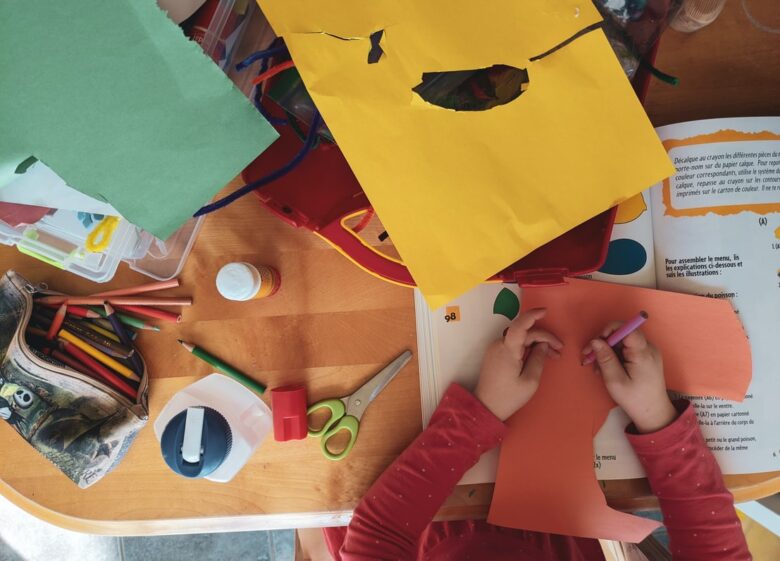The summer holiday is the most awaited period of the year for many, regardless of age. But for children, this means total freedom and only play. While this is true and highly beneficial, it is crucial not to let your kids get totally disorganized and stop following a schedule. Playing games and socializing is a vital part of a child’s growth and development.
However, it is essential to plan a positive summer routine with them, so they don’t, for example, start going to bed too late and disrupting their sleep pattern. Doing outdoor and indoor activities is beneficial for both their physical and mental health. Being outside with other children playing various games and taking this opportunity to do some family activities are equally necessary and good for your child’s well-being.
So, if you wish to support your child’s development during the summer holiday, here are six things you could do to keep them active and productive:
1. Freedom brings creativity

When school ends and the summer holiday comes, it is undeniable that children feel a freedom that makes them think the world is their oyster. And it can be, as this time can be effectively used for children to discover new interests, learn new skills or make new friends. For this to happen, it is essential you allow them to use this time as they please. This will also give them a sense of autonomy and increase the mutual trust between them and you as a parent.
This being said, it is of the utmost importance for them not to lose the beneficial structure they follow when they are at school. Not as rigorous, indeed, as you want them to explore different interests and meet other children. However, it is essential for them not to spend the entire summer holiday without a positive routine.
2. Nurture their creativity

Parents’ role is to nurture and support their children’s desire to explore their creativity. During this time, chances are they will find various, different interests, change their likes and dislikes and uncover a talent or passion. So, whether it is drawing or following a dancing class, it is essential you help them find their skills and preferences.
Signing them up for an arts and crafts class or supporting them if they wish to learn how to play an instrument are some examples of how you can nurture their creativity. Or, perhaps, they would like to try a sport. Not only is this beneficial for their physical health, increasing their strength and boosting their immune system, but it can also help them become more creative. Studies have shown that exercising can increase the creativity of an individual.
3. Consider signing them to summer camps

Summer camps have always been an excellent environment for children to learn valuable things while playing or making friends. This remains true, given that some various activities and games support and facilitate learning in children. During their development years, when they can absorb a great deal of information, it is vital to give them access to accurate information and the correct tools to understand it.
For this reason, you might want to consider signing your child up for a summer camp. There, they will play different games and get involved in activities that enhance their cognitive and social skills. Plus, if you are not ready to send them to a camp that is too far away, there are local options like that provide summer camps in Queens where your child can go and see how they like this environment.
4. Involve them in various activities

Another beneficial activity you could involve your kids in is something that you, as a parent, will be doing. For instance, next time you are baking something or cooking lunch or dinner, you could ask your kid to help. And if you think they won’t be interested, it is crucial you make this activity exciting and appealing to them.
What you could do is to bake, for example, cookies in the form of their favorite cartoon or comic book character. This is a mutually beneficial activity, given that you find common ground with your child. While doing this, they also learn that it takes time, knowledge, and discipline to cook or do house chores. However, don’t forget – you should both have fun while doing so. This way, learning won’t seem like a school task.
5. Improve their reading skills while doing a digital detox

The same goes for reading – more often than not, kids prefer doing other things than reading, especially in their younger years. This happens because they can get easily distracted. What’s more, with so many distractions around nowadays, like tablets, and various apps or games, it is even more challenging for them to get involved in reading.
While you cannot forbid your child from spending time on your tablet altogether, or playing video games, for example, it is vital you do a digital detox regularly. Access to so much information can be harmful. An effective way of doing this is getting your child interested in reading. You might ask yourself how to do this. For instance, buy them a short story about a topic you know is of interest to them or buy them a comic book. These types of books are not difficult to read and are well-written to improve their reading skills.
6. Watch educational videos with them

If they want to use your tablet or smartphone, or they are at the age when they own their own, you might do it with them. Nowadays, many educational social media accounts present interesting and helpful facts simply and appealingly. This is an effective way for them to find out crucial information and understand various aspects of life as they grow older. Topics like the environment, taking care of nature, or being empathetic can be taught by watching educational videos. And who knows, maybe you help them find interest in a particular topic.
This is another example of how to keep your children active and productive during the summer holiday. While it is imperative you give them the space needed to enjoy their freedom and discover their creativity, it is equally essential you support their development. Whether through educational videos, doing activities together, or summer camps, it is vital you pay attention to them and create the right environment where they can explore their creativity.
According to thelearningexperience.com if they want to use your tablet or smartphone, or they are at the age when they own their own, you might do it with them.


